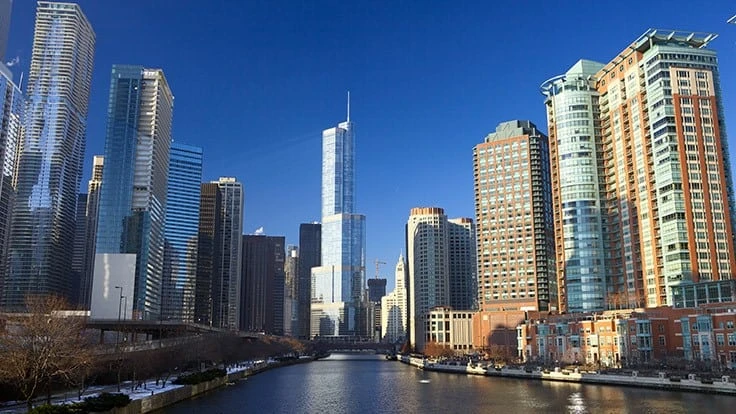
© Dibrova | Dreamstime.com
An audit performed by the City of Chicago Office of Inspector General (OIG) has found that the Department of Streets and Sanitation (DSS) does not ensure owners of commercial and high-density residential buildings with five or more units provide recycling services as required by the Chicago Recycling Ordinance. A news release from the OIG notes that the city is required to provide buildings found in violation of this requirement 30 days to come into compliance; continued noncompliance can result in fines ranging between $500 and $5,000 per day.
Additionally, the OIG audit concluded that DSS does not ensure that private haulers submit complete, accurate and timely reports detailing the buildings they served, and the amount and type of materials hauled.
OIG made several recommendations to help DSS consistently record and monitor the outcomes of recycling inspections and to proactively enforce the Recycling Ordinance:
- work with the Department of Law (DOL) and the Department of Assets, Information and Services (AIS) to configure its Mobile E-Ticket system to allow users to issue citations for violations of the ordinance;
- consistently record and monitor whether building owners received 30-day notices and the outcomes;
- ensure that private haulers submit complete, accurate and timely annual reports;
- review the design of the annual reports to ensure it supports the city’s recycling goals;
- develop procedures to incorporate private haulers’ diversion data into a citywide waste diversion rate; and
- ensure that private haulers report customers who decline recycling services.
The OIG says the DSS agreed with its recommendations and said it would continue working with DOL and AIS to revise citation processes and add the ordinance to the ticketing system, as well as develop a proactive enforcement strategy concerning recycling services once the city’s comprehensive waste study is completed.
“Proper recycling in commercial and high-density residential buildings, the latter of which make up more than 40 percent of households throughout Chicago, can help reduce the city’s dependence on landfills, which emit greenhouse gases that harm public health and natural habitats,” Inspector General Joe Ferguson says. “While the city of Chicago has implemented a variety of recycling programs throughout the years, it has historically struggled with low participation rates. The Chicago Recycling Ordinance was amended in 2017 to include stronger enforcement provisions, but our audit shows that this responsibility has not been met and significant barriers still exist.”
Ferguson continues, “As we await the city’s comprehensive waste study and its eventual impact on a proactive enforcement strategy, we are encouraged that the Department of Streets and Sanitation agreed with our recommendations and has begun collaborating with other departments to improve its citation system and address compliance issues.”
Latest from Recycling Today
- BMW Group, Encory launch 'direct recycling’ of batteries
- Loom Carbon, RTI International partner to scale textile recycling technology
- Goodwill Industries of West Michigan, American Glass Mosaics partner to divert glass from landfill
- CARI forms federal advocacy partnership
- Monthly packaging papers shipments down in November
- STEEL Act aims to enhance trade enforcement to prevent dumping of steel in the US
- San Francisco schools introduce compostable lunch trays
- Aduro graduates from Shell GameChanger program





